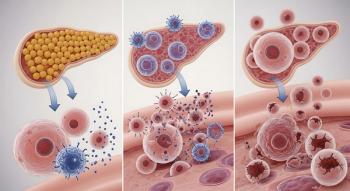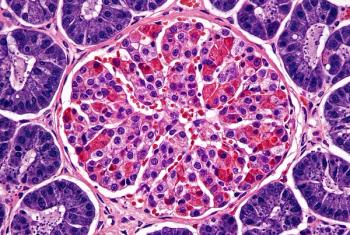
World’s First Immunotherapy Trial for Type 1 Diabetes Is Underway in Australia
Led by the University of Queensland’s research facility, Frazer Institute, the trial examining the drug ASITI-201 is the first of its kind in the world and has already dosed its first five participants.
A groundbreaking clinical trial for the new immunotherapy drug to treat Type 1 diabetes (T1D) has begun in Australia.
Led by the University of Queensland’s research facility, Frazer Institute, the trial examining the drug ASITI-201 is the first of its kind in the world and has already dosed its first five participants.
The trial is also still recruiting participants but is currently limited to residents of Queensland only.
Researchers are seeking individuals over the age of 18 who have been diagnosed with Type 1 diabetes within the past five years to participate at the Translational Research Institute’s Clinical Research Facility, located at Brisbane’s Princess Alexandra Hospital.
Professor Ranjeny Thomas of Frazer Institute is leading the development of ASITI-201, a targeted immunotherapy drug designed to rebalance the body’s immune response and protect insulin-producing cells in the pancreas.
“In people with Type 1 diabetes, the immune system starts to (recognize) pancreatic cells as something it needs to attack, and right now the only available treatment is insulin replacement,” Thomas said in a
She added the treatment “uses the immune system’s ability to heal and has been successful in controlling the disease in mice.”
T1D is a chronic autoimmune disease that occurs when
This destruction results in a complete deficiency of insulin, a hormone vital for regulating blood sugar levels.
Managing the disease typically requires lifelong insulin therapy, regular blood glucose monitoring and careful carbohydrate counting.
T1D can also be diagnosed at any age, but it most often appears in children between the ages of 4 to 6 and again between 10 to 14 years, according to the Cleveland Clinic.
It is one of the most common chronic diseases among children in the U.S., affecting about 1.24 million Americans today—a number projected to rise to five million by 2050.
In Australia, more than 120,000 people are living with T1D, the report shared.
This new trial can offer hope for a treatment that addresses the root cause of the disease rather than just managing its symptoms.
Lead investigator and endocrinologist at Princess Alexandra Hospital in Woolloongabba, Australia, Aakansha Zala, M.D., said the aim of the drug is to preserve pancreatic function in recently diagnosed individuals to minimize the need for insulin injections.
“We will be looking at whether the drug changes the immune system in the way that we anticipate,” Zala said in the report.
Professor Thomas stressed the importance of expanding the trial to include children in the future, due to their faster progression to insulin dependence.
“Ultimately, we need to move to larger trials which include children, who have a much faster progression to insulin dependence,” Thomas said. “We've been developing a similar drug with the potential to treat rheumatoid arthritis, and that knowledge has supported our development of this drug for Type 1 diabetes.”
The study is funded by the Medical Research Future Fund through CUREator, Australia’s national biotech incubator.
Preclinical development of ASITI-201 was supported by several grants from Breakthrough T1D (formerly JDRF), totaling $2.54 million between 2003 and 2015.
Additional funding came from the Leona M. and Harry B. Helmsley Charitable Trust, which awarded two grants totaling $5.33 million to complete preclinical safety studies and manufacturing.
Newsletter
Get the latest industry news, event updates, and more from Managed healthcare Executive.

























